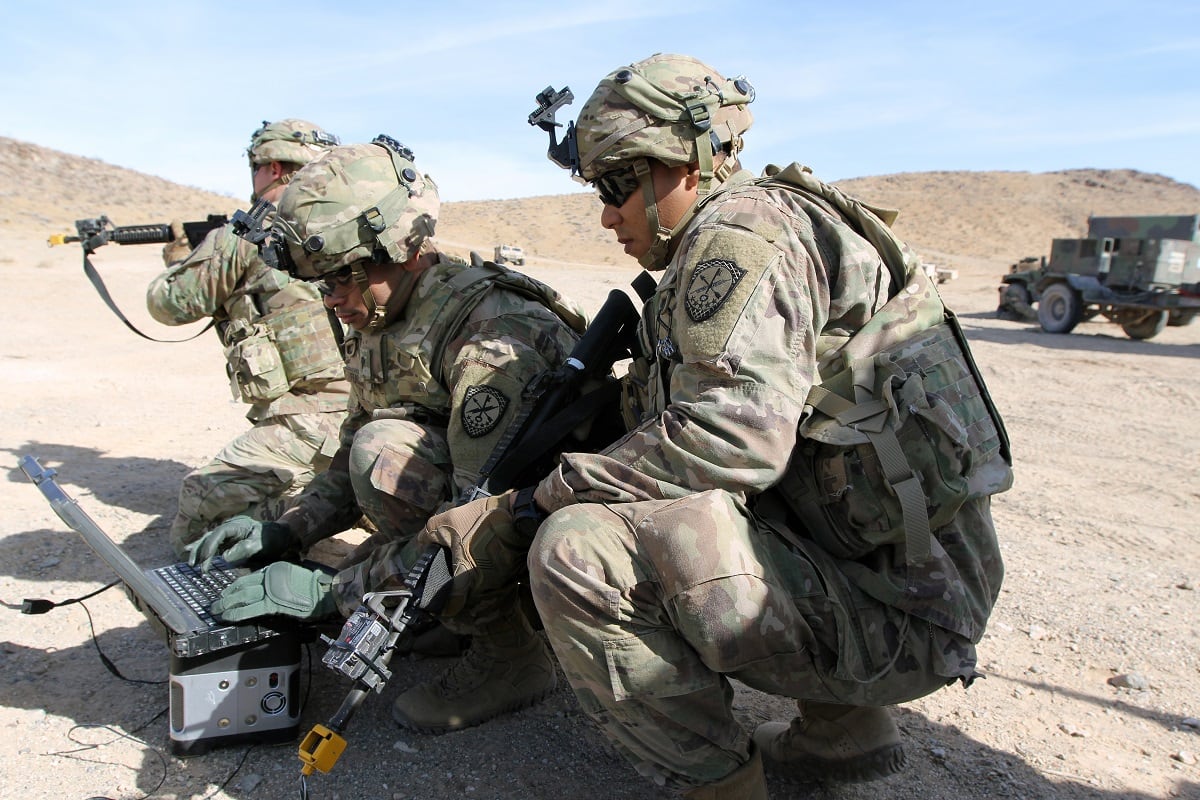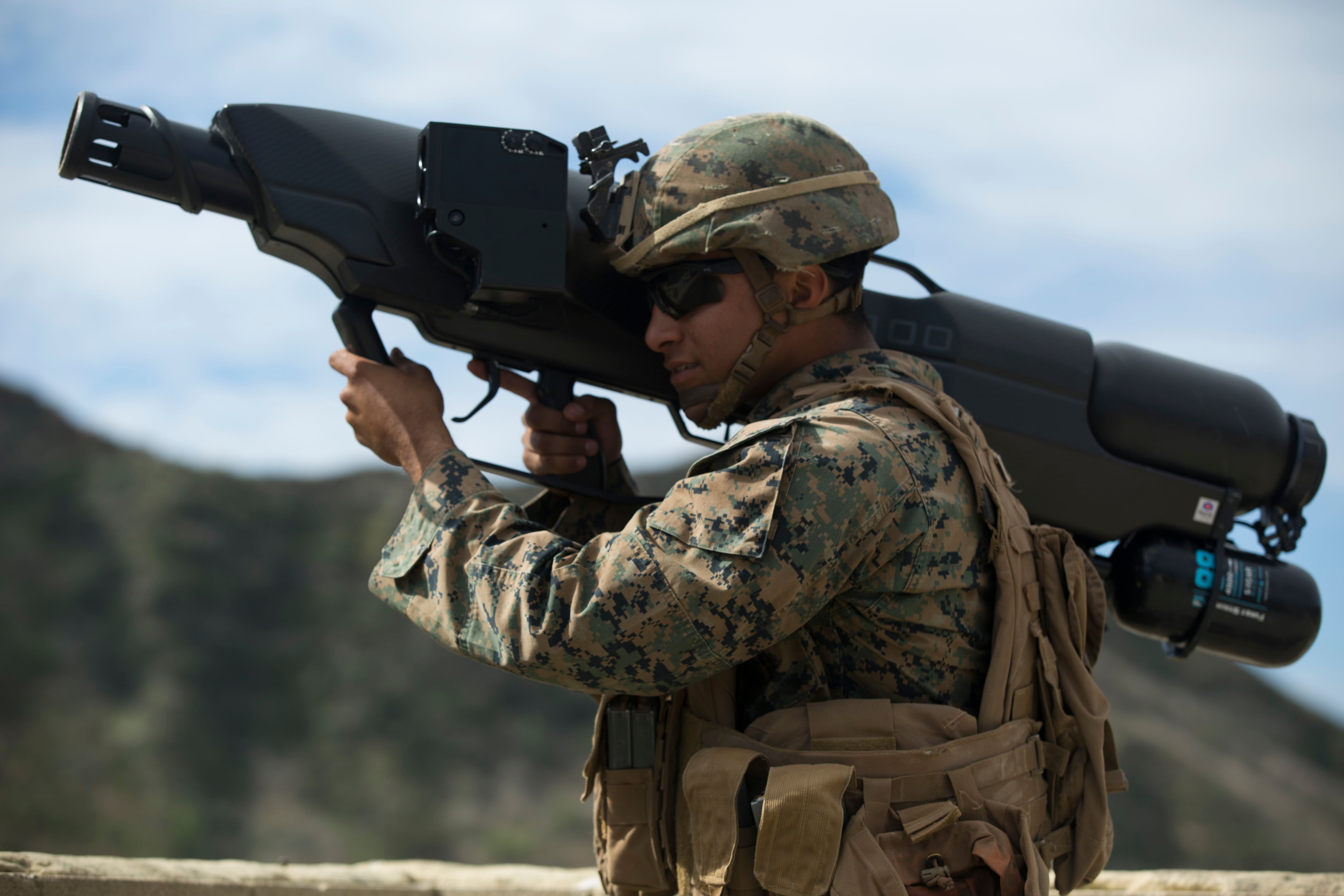WASHINGTON ― A bipartisan congressional panel is recommending that the Pentagon must “identify, replace, and retire costly and ineffective legacy weapons platforms,” and prioritize artificial intelligence, supply chain resiliency and cyberwarfare in order to compete with China and Russia.
The House’s Future of Defense Task Force’s 87-page report issued Tuesday echoed the accepted wisdom that the Pentagon must expand investments in modern technologies and streamline its cumbersome acquisition practices or risk losing its technological edge against competitors.
The task force is co-chaired by House Armed Services Committee members Reps. Seth Moulton, D-Mass., and Jim Banks, R-Ind., who both signaled they’ll champion elements of the report in future defense authorization legislation. While lawmakers are broadly in favor, efforts to retire specific platforms often meet resistance on Capitol Hill.
On weapons systems, the task force offered some practical steps to this end. Congress, it said, should commission the RAND Corporation, or similar entity, and the Government Accountability Office to study legacy platforms within the Defense Department and determine their relevance and resiliency to emerging threats over the next 50 years.
RELATED

Then a panel should be convened, comprising Congress, the Department of Defense, and representatives from the industrial base, to make recommendations on which platforms should be retired, replaced or recapitalized, the report reads.
Investments in science and technology research need to be prioritized nationally, and at the Pentagon level such investments should meet 3.4 percent of the overall defense budget, as recommended by the Defense Science Board. Funding ought to be expanded at the Defense Advanced Research Projects Agency, national and defense research laboratories and partnering universities, the report says.
The report recommended that each of the military services ought to spend at least one percent of their overall budgets on the integration of new technologies.
The Pentagon must, the report says, scale up efforts to leverage private sector innovation, which is leading the government. The report calls for a tenfold increase in spending for Defense Innovation Unit, AFWERX, Army Futures Command and others ― and more collaborative opportunities like Hacking for Defense.
The report calls for a Manhattan Project for artificial intelligence, saying DoD must go further than its increased investment in AI and Joint Artificial Intelligence Center to assist with the transition and deployment of AI capabilities.
“Using the Manhattan Project as a model, the United States must undertake and win the artificial intelligence race by leading in the invention and deployment of AI while establishing the standards for its public and private use,” the report’s authors wrote.
(The Manhattan project is the U.S.-led World War II-era research and development effort that produced the first nuclear weapons.)
The report calls for every major defense acquisition program to evaluate at least one AI or autonomous alternative prior to funding. Plus, all new major weapons purchases ought to be “AI-ready and nest with existing and planned joint all-domain command and control networks,” it says.
RELATED

Warning the country’s supply chain is one of its “greatest national security and economic vulnerabilities,” the report calls for a national supply chain intelligence center under the Office of Director of National Intelligence and the elimination of single points of failure within DoD’s supply chain.
The task force, launched last October, includes several lawmakers with practical national security experience: Rep. Chrissy Houlahan, D-Pa., a former Air Force officer who studied technology and policy at the Massachusetts Institute of Technology; as well as Reps. Elissa Slotkin, D-Mich., and Michael Waltz, R-Fla., who have served in senior Pentagon policy jobs.
HASC members Reps. Susan Davis, D-Calif., Scott DesJarlais, R-Tenn., and Paul Mitchell, R-Mich., also served on the task force.
In a statement, Moulton said the bipartisan plan could be used, no matter the outcome of the Nov. 3 presidential and congressional elections. “America needs a plan to confront the dual threats of Russia’s aggression and China’s rise. This is it,” he said.
Joe Gould was the senior Pentagon reporter for Defense News, covering the intersection of national security policy, politics and the defense industry. He had previously served as Congress reporter.







